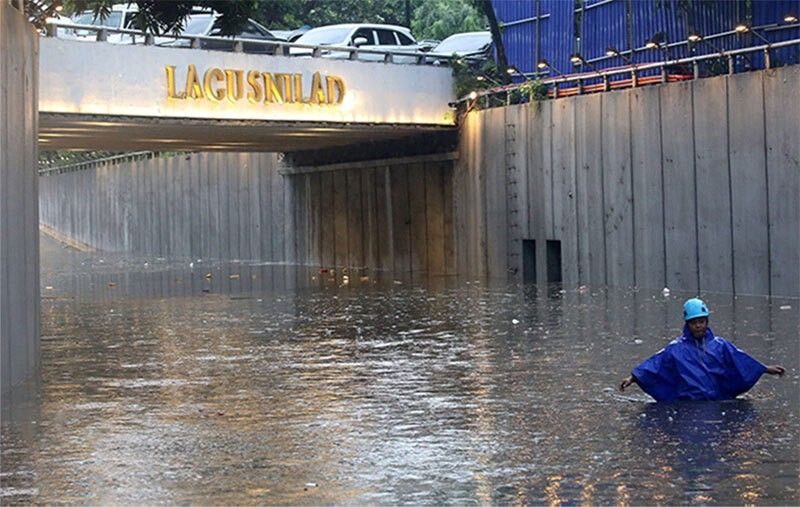Winds of change for trade and industry


In just one short week, an unexpected storm has swept the country’s trade and industry sector as much as Super Typhoon Carina wreaked havoc on the country even though it did not directly hit the Philippines and was not expected to bring a torrent of rain that exceeded even the flooding caused by the historic Typhoon Ondoy (international name Ketsana) in September 2009.
Trade and Industry Secretary Alfredo Pascual, in a similar manner and without any warning, tendered his resignation on July 31 but effective Aug. 2, expressing his desire to return to the private sector where he said he would continue to contribute his expertise and experience while he enjoys more time with his family.
It was surprising as Pascual seemed to be getting along quite well in the Marcos administration, attending several economic forums that outlined the current administration’s plans for the country.
The former DTI Secretary was even being invited by organizers of the Monday Circle to grace their bimonthly breakfast meetings to follow up on a July 29 briefing with iron and steel industry participants who were hoping to impress to the DTI chief the need to revitalize the country’s steel industry that continues to struggle to attain capability and capacity even as other vital sub-sectors such as the steel galvanizers are nearing the brink of extinction which would only mean more reliance on foreign imports.
According to former National Steel Corp. (NSC) president Rolando Narciso, the Philippine steel industry has regressed so much compared to its heyday in the 1980s when the country, under then president Ferdinand Marcos Sr., had an ambitious industrialization program that was envisioned to make the Philippines a truly industrialized nation, capable of manufacturing its own needs.
I intend to write a longer column on the state of the Philippine iron and steel sector in another column.
The 11 industrial projects that Marcos Sr. started were the NSC for an integrated steel manufacturing sector; the Philippine Associated Smelting and Refining Corp. or PASAR for copper smelting; the Philippine Phosphate Fertilizer Corp. or PhilPhos; an aluminum smelting plant; a diesel engine manufacturing sector; cement manufacturing; coconut industry rationalization; an integrated pulp and paper manufacturing sector; a petrochemical industry; a heavy engineering sector and alcogas production.
Unfortunately those projects, under favored cronies, all ran into financial problems and were eventually privatized. None received the proper government support and vision to guide them.
Thus, the candidate for the newly vacant DTI post may already have his/her agenda cut out for him/her, learning from the mistakes of the past and seeing the need for the Philippines to build supply sufficiency for itself rather than continuing with import dependence in an increasingly fractured global trading and political world.
It is so unfortunate that with our abundant natural resources, especially in mining and agriculture, we resort to the export of our raw resources and end up buying/importing back the finished goods at a much higher cost.
Additionally, the next DTI head must also continue with the work of Pascual on supporting the county’s micro, small and medium enterprises (MSMEs) which has been the backbone of the Philippine economy but continues to meet hurdles and faces strong competition from our ASEAN neighbors who appear to be making better progress than us.
Consumer protection is also one area that the next DTI chief must address as Philippine-made products continue to remain inferior to imported goods. Thus, we see the continued preference of local consumers for foreign-made products that they can rely on instead of Philippine-made but defective goods that are often hard to get repaired or replaced since there is very weak enforcement of consumer rights and protection.
Local industry sectors also face numerous hurdles from illegally smuggled or imported goods that fail to be properly taxed and monitored.
Good luck to the next DTI Secretary.
Father of Hybrid Rice
Henry Lim Bon Liong, chairman of the Sterling Paper Group of Companies, but better known as the Father of Hybrid Rice, passed away last Friday at the age of 72.
I had met him when I was a reporter covering the agriculture beat and was a witness to how passionate he was about sharing the hybrid rice technology he had acquired from China and which he wanted to share with Filipino farmers to raise our rice production.
He worked closely with then Agriculture secretary Arthur Yap and Dr. Frisco Malabanan to encourage and promote the use of hybrid rice seeds even as he faced strong opposition and skepticism from farmers who wanted to cling to inbred rice production.
It was clear that despite his well-meaning effort, our rice sector continues to struggle and remains dependent on imported rice while our neighbors have been more receptive to his assistance on hybrid rice production.
According to Federation of Filipino Chinese Chambers of Commerce and Industry, Inc. (FFCCCII) president Dr. Cecilio Pedro, the death of Henry Lim Bon Liong is a profound loss not only to the Filipino-Chinese community and business sector, but also to the entire country.
Henry Lim Bon Liong, Pedro said, was an exemplary philanthropist, a respected business and civic leader and was a dynamic advocate for Philippine agriculture. He was also an advocate for Philippines-China friendship and economic cooperation and was a past president of the FFCCCII.
- Latest
- Trending


























